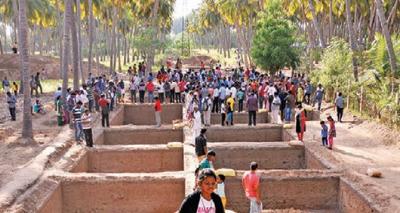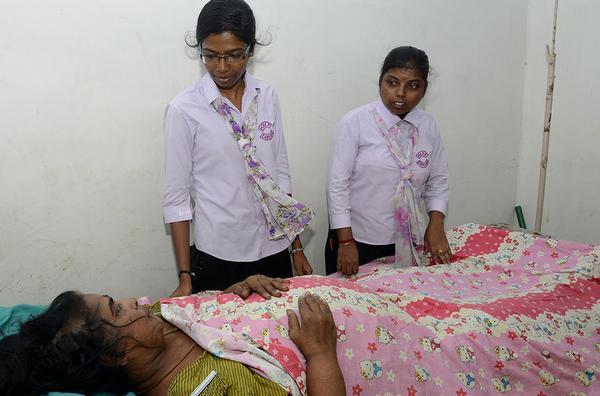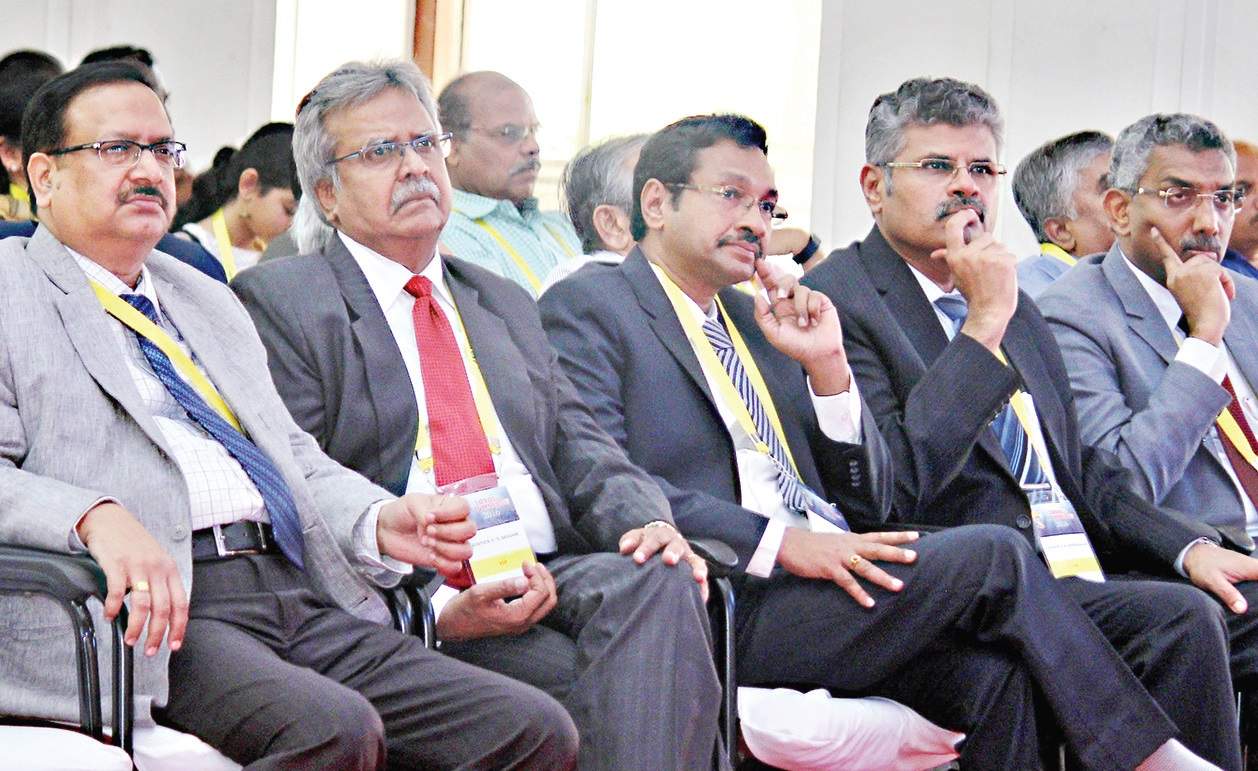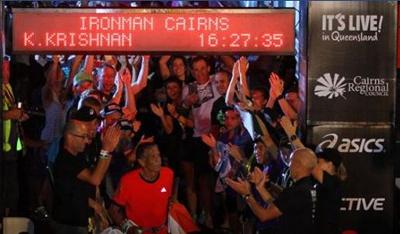Monthly Archives: October 2016
05th oct
A look at South India’s journey into iron age

The Indus Valley Civilisation was part of the cop per age which dates back to 6000 BC but, interestingly, man was still in the stone age in southern India during that time, notes P D Balaji, head, department of history and archaeology, University of Madras . “In peninsular India, the chalcolithic (copper) age deposits overlap with the neolithic deposits of the stone age. There is neither pure neolithic culture nor pure chalcolithic culture in south India ,” Balaji said during the 23rd annual session of the Tamil Nadu History Congress at Periyar University in Salem on Sunday.
Balaji said the reason for the absence of the pure copper age in southern India still intrigues many archaeologists.At one point of time in India, both copper (in north) and stone (south) were used as raw materials for manufacturing tools. This might be the reason for the presence of copper implements mixed with the neolithic deposits, he said.
“The inverted firing technology used for manufacturing black-and-red-ware pottery had emerged in north India during the copper age itself. In many chalcolithic sites, including the later Harappan sites, black-and-red-ware sherds are found in plenty. However, the same technology took more than 1,500 years to reach the southern part. When it reached peninsular India, people were in the iron age,” he said.
The chalcolithic-era pottery of north India eventually became the characteristic pottery of iron age culture in south India. “Perhaps this sort of divergent chronology leads one to interpret that development first took place in north India, from where it penetrated to other parts,” said Balaji, who was speaking on ” Archaeology in reconstructing the past: Problems and perspectives”.
The iron age of south India is considered important as there was an extensive horizontal mobility of society during the phase. To prove his point, Balaji said microsettlements began to emerge all over the ancient Tamil country at this time. “The people of this period followed a megalithic culture that synchronised with the end phase of iron age and preSangam age. That vouchsafes for the references to megalithic burial practices in the Sangam literatures literatures,” he said.
The Sangam age between 300 BC and 300 AD was significant as it was during this period that major townships, capital cities and port cities came into existence for the first time in the ancient Tamil country, he added.
source: http://www.timesofindia.indiatimes.com / The Times of India / News Home> City News> Chennai / M T Saju / TNN / October 04th, 2016
A clinic that takes the sting out of pain for chronically ill

Cancare Foundation provides care and treatment to cancer patients with a special focus on those who are chronically ill or in the terminal stages.
Ever since he came to Ramarau Clinic a couple of weeks ago, Ramesh* has been able to handle pain much better. The 62-year-old, who has oral cancer, is terminally ill but writing on a notepad — since he has difficulty speaking — he praised the doctors and nurses who looked after him.
The staff are part of Cancare Foundation that functions out of the clinic, and which provides care and treatment to cancer patients with a special focus on those who are chronically ill or in the terminal stages.
In the next room, another patient who has lymphoma said, “I didn’t know until four months ago that I had cancer. They said I was at a late stage. I was in a lot of pain initially, but it is much better now,” she said.
The five-bed centre offers free care and palliation to those who cannot be looked after at home. The Foundation also provides home care. Over the five years of its existence, over 6,000 home visits have been made to over 700 patients. In the year-and-a-half that the palliative care centre has been running, there have been 243 admissions. “There is a growing thrust towards palliative care both internationally and in the country,” said S.G. Ramanan, oncologist and one of the trustees of the Foundation. “What we do is integrate palliative care early in the course of the illness so that the transition for the patient is seamless. Studies have shows that the early intervention of palliative care in oncology actually improves survival rates,” he said.
Apart from the centre and home visits, the Foundation also focuses on education: continuing medical education programmes are held for medical and paramedical professionals. Ahead of October 8, which is World Hospice and Palliative Care Day, the Foundation has planned to conduct a day-long conference on pain and palliative care in oncology, said Akhila Srinivasan, one of the trustees. “The focus is going to be on the right to a painless death,” she said.
“With the incidence of cancer rising in India and 10 lakh new cancer cases every year, most of which come in for care very late, there is a need to increase awareness about palliative care,” said Dr. Ramanan. Families needing help can call 7299203457/42956777.
(*Name changed)
source: http://www.thehindu.com / The Hindu / Home> News> Cities> Chennai / by Special Correspondent / Chennai – October 02nd, 2016
‘Special op’ tracks down long lost classmates for Loyola reunion

Chennai :
Not enough 60-year-olds are on Facebook. This is probably why the folks behind the reunion of the Economics batch of 1976, Loyola College had to request a ‘special op’ be carried out to track down their classmates.
Members of the alumni committee, who have diligently tracked down every one of their 76 classmates, did so over a span of two years. Gerald Arputhasamy, one of the alumni and co-ordinator of the event over the weekend, recalled, “We have called offices, wives, postmen, even rang up the United Nations once to reach a classmate of our who works with the World Trade Organisation!”
Sadly what they found was that 40 years after college graduation, nine classmates were deceased and several others – spread all across from Sowcarpet to Singapore – were unreachable.
That’s when Gerald requested classmate and friend, retired Commissioner of Police T Rajendran to help out. And as you can imagine, returning home from work to find out that cops had come knocking, alarmed more than one senior gent in the process. “We had quite a few people scared, before they called back and I got to say: It’s me machan,” remembers Rajendran with a laugh. In this day and age, the concept of ‘unreachable’ is rather alien for most, but this team did not have it that easy.
Like M Ganesan from Tirupattur who was tracked by his classmates all the way down to his new address and the postmaster in the main office. With a little convincing, this enabled them to collect the number of the specific postman who frequented Ganesan’s street. He was requested to give a missed call when near his house. However, Ganesan’s elderly father was not as pliable, refusing to share his son’s number with the postman.
So when Ganesan did eventually return home that week, he was shocked to learn that a police visit to his house had become the talk of the neighbourhood. Although now he’s got one heck of a story to tell his grandchildren before they head off to college!
The Loyola College Economics Batch of ’76 reunion will take place on October 8. The alumni who have tracked down a good number of their faculty as well plan to kick-off the day by recreating morning attendance with their original roll numbers.
Legal luminaries honoured at meet
Loyola College on Sunday honoured several legal luminaries, including Supreme Court Judge Justice Jasti Chelameswar, with its alumni award as part of its annual ‘Alumni Day’ celebrations. Besides Justice Chelameswar, a BSc Physics student of the college who passed out in 1972, the college also awarded its other alumni, Justices T S Sivagnanam, C T Selvam, V Bharathidasan, M M Sundresh (all from Madras High Court) and Justice R Sudhakar of the Jammu & Kashmir High Court. Senior advocates Krishna Srinivasan, PS Raman, Vijay Narayan and Joseph Kodianthara were also honoured on the occasion. Delivering his address as the chief guest, Justice Chelameswar said the role of education is to refine the value systems of students.
source: http://www.newindianexpress.com / The New Indian Express / Home> Cities> Chennai / by Express News Service / October 03rd, 2016
Age no bar: Meet India’s oldest Ironman

Chennai :
“Post retirement, you have to keep yourself occupied,” says Arun Krishnan . The 67-year-old may sound like any other elderly person striving to remain purposeful, but make no mistake, Krishnan is India’s oldest Ironman , and acknowledges better than anyone else that age is just a number. “Anything is possible if one has the will,” he says.
In 2009, a day after he turned 60, he sat down to prepare himself a bucket list and wrote down a determined entry – ‘The Ironman Asia Pacific Championship, Cairns, Australia’. To Krishnan, a fitness buff with extraordinary levels of endurance, this seemed doable with rigorous training. However, two years later in 2011, his doctors informed him that his knees had worn out and forbade him from climbing stairs, leave alone running.
“I quickly took to Ayurveda, which helped me do the Chicago, Berlin and the Half Iron marathons. But that said, Ayurveda worked for me, it need not for everyone. One must be careful,” says Krishnan.
In January 2014, misfortune struck again when he was all set to compete in the Tokyo marathon. His knees locked up and he completed it in six agonizing hours, swearing “I’d never run again.” But the itch of completing an Ironman triathlon got the better of him and he once again sought Ayurveda, this time, along with physiotherapy. The Ironman games called for a rigorous training spanning 24 weeks, and when Krishnan came to know of even older contenders participating in it including an 84-year-old Japanese man and an 82-year-old Catholic nun – it gave him further impetus to see it through.
After braving a swelling sea following sudden rain, Krishnan finished the triathlon with a 3.9km swim, 180km of cycling and a 42km run, in 16 hours, 27 minutes and 35 seconds, about two minutes and 25 seconds ahead of the cut-off time.
After achieving such an incredible feat, one may think that a man of Krishnan’s age would like to go easy. But not for a man with Krishnan’s spirit. He, instead, penned down another task to his bucket list – to train for another two decades to run an Ironman with his granddaughter. “She’s two years old now,” he smiles, adding “But more immediately, I want to run the Boston qualifier.”